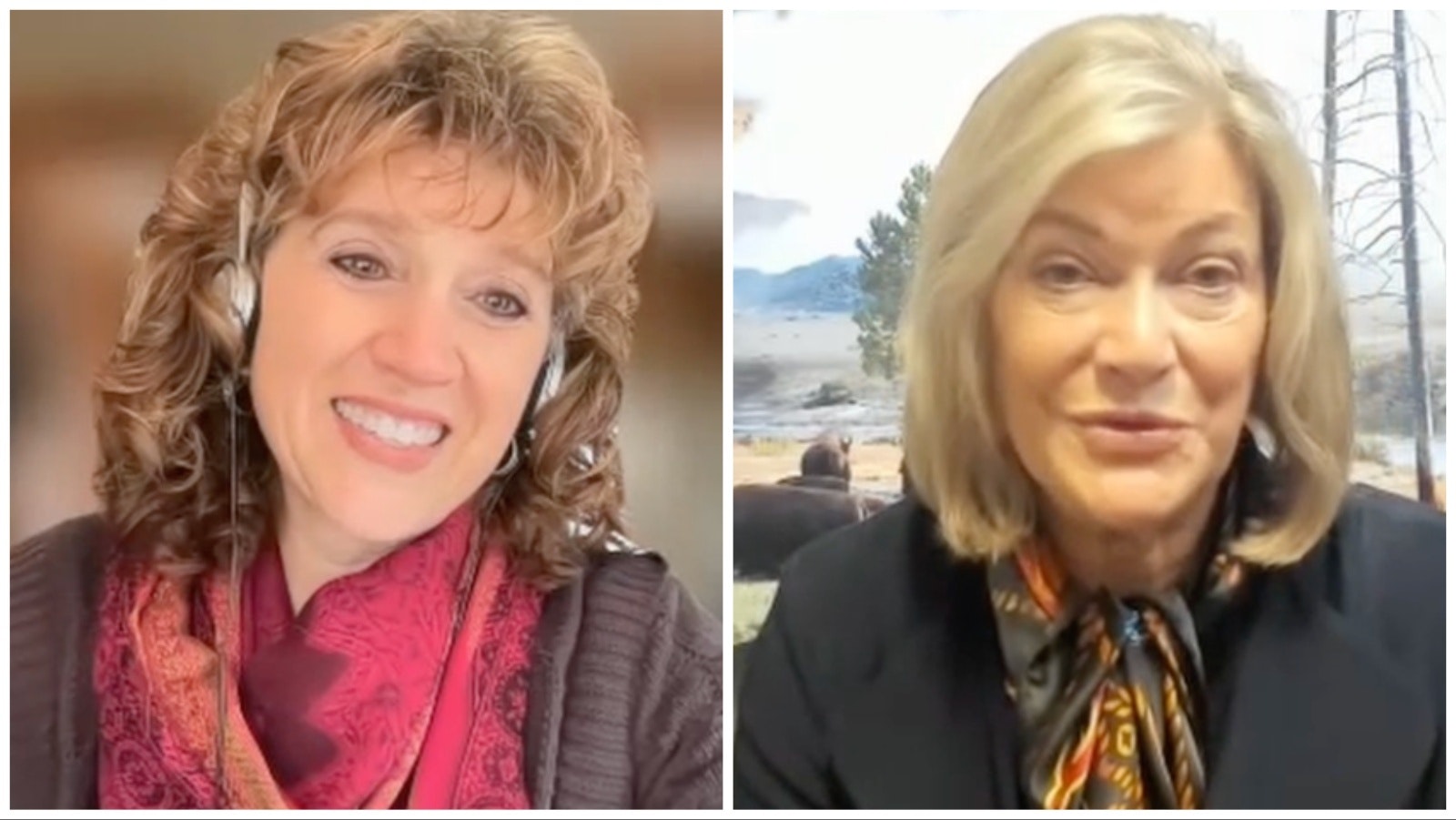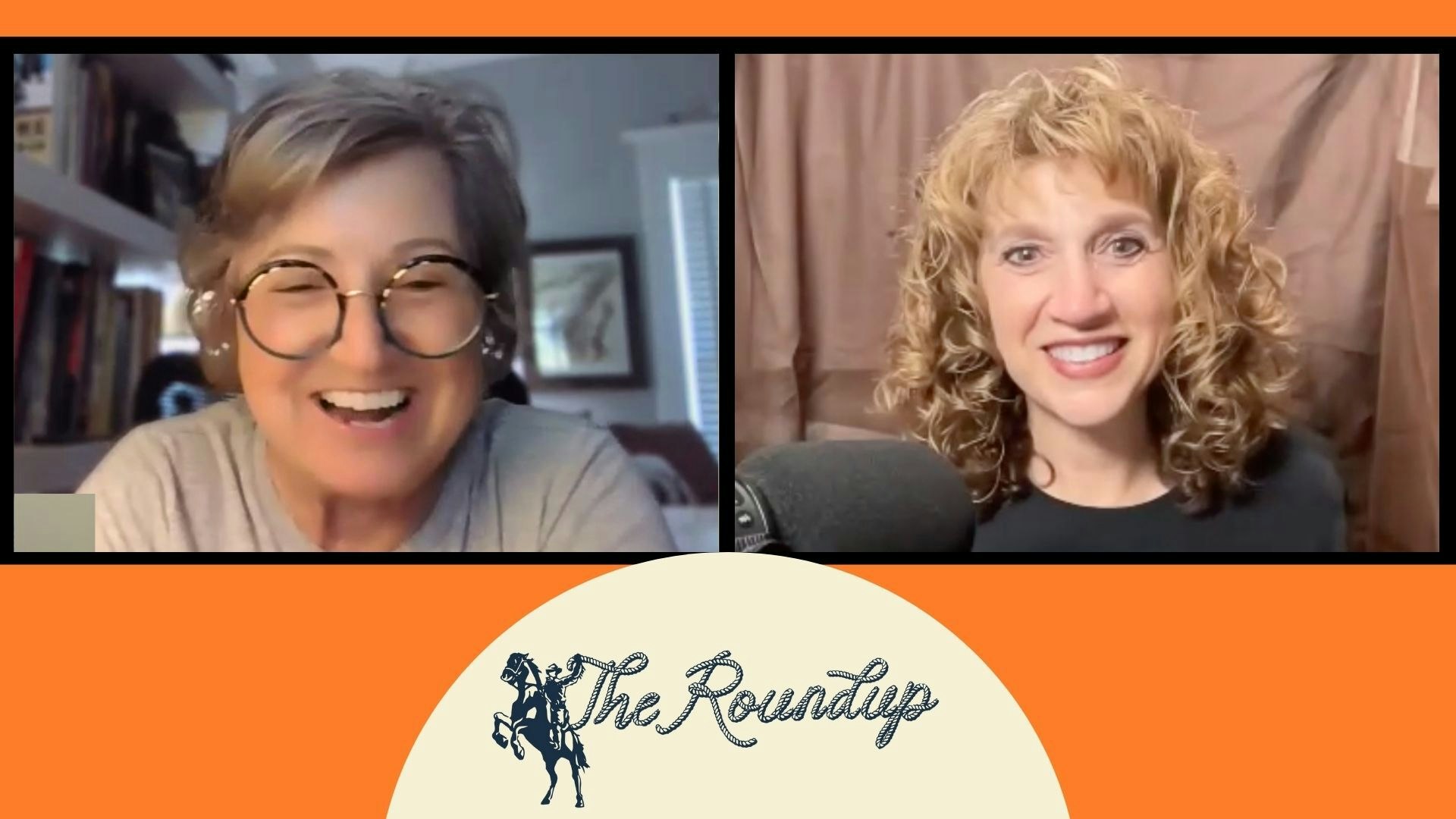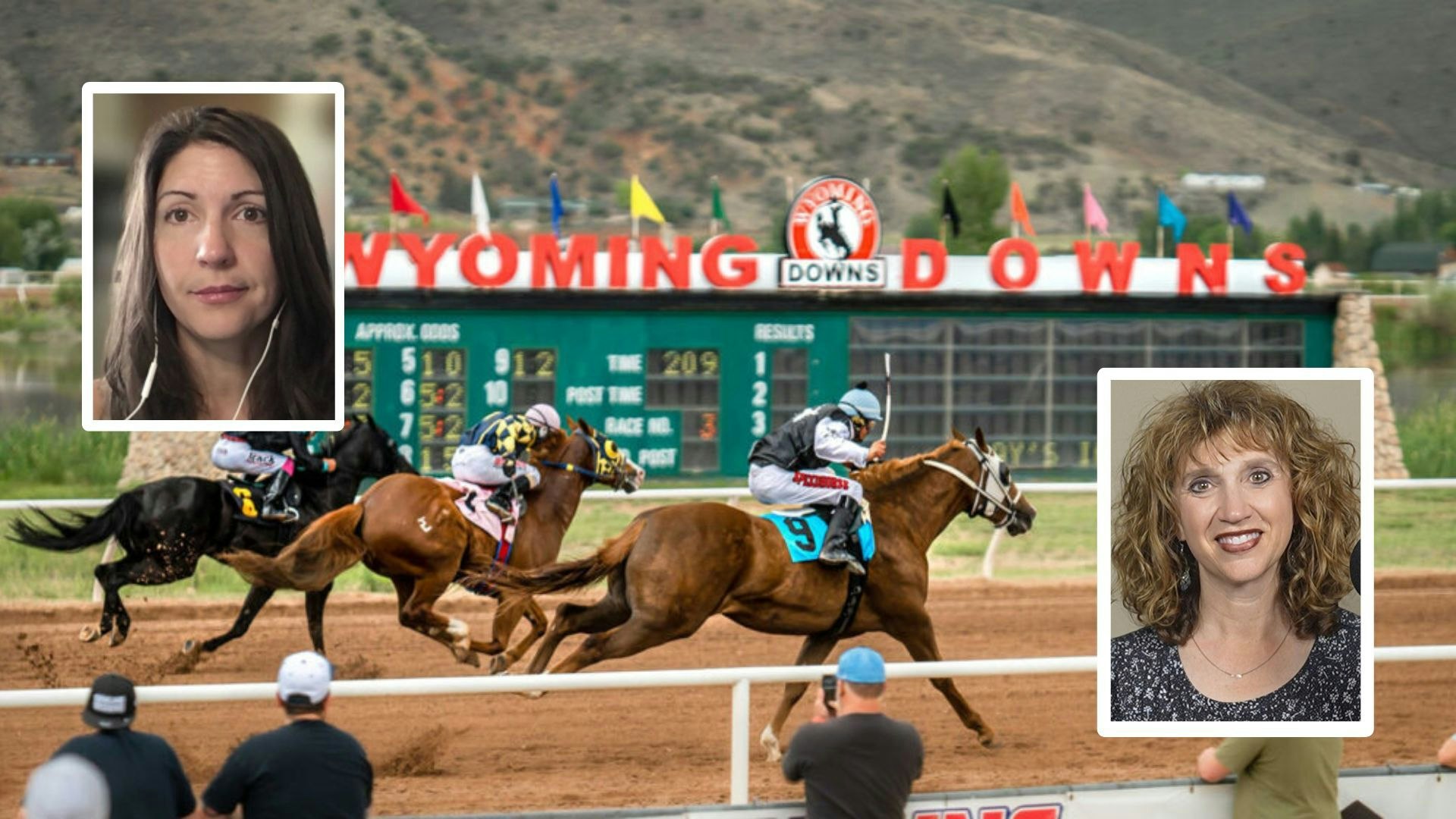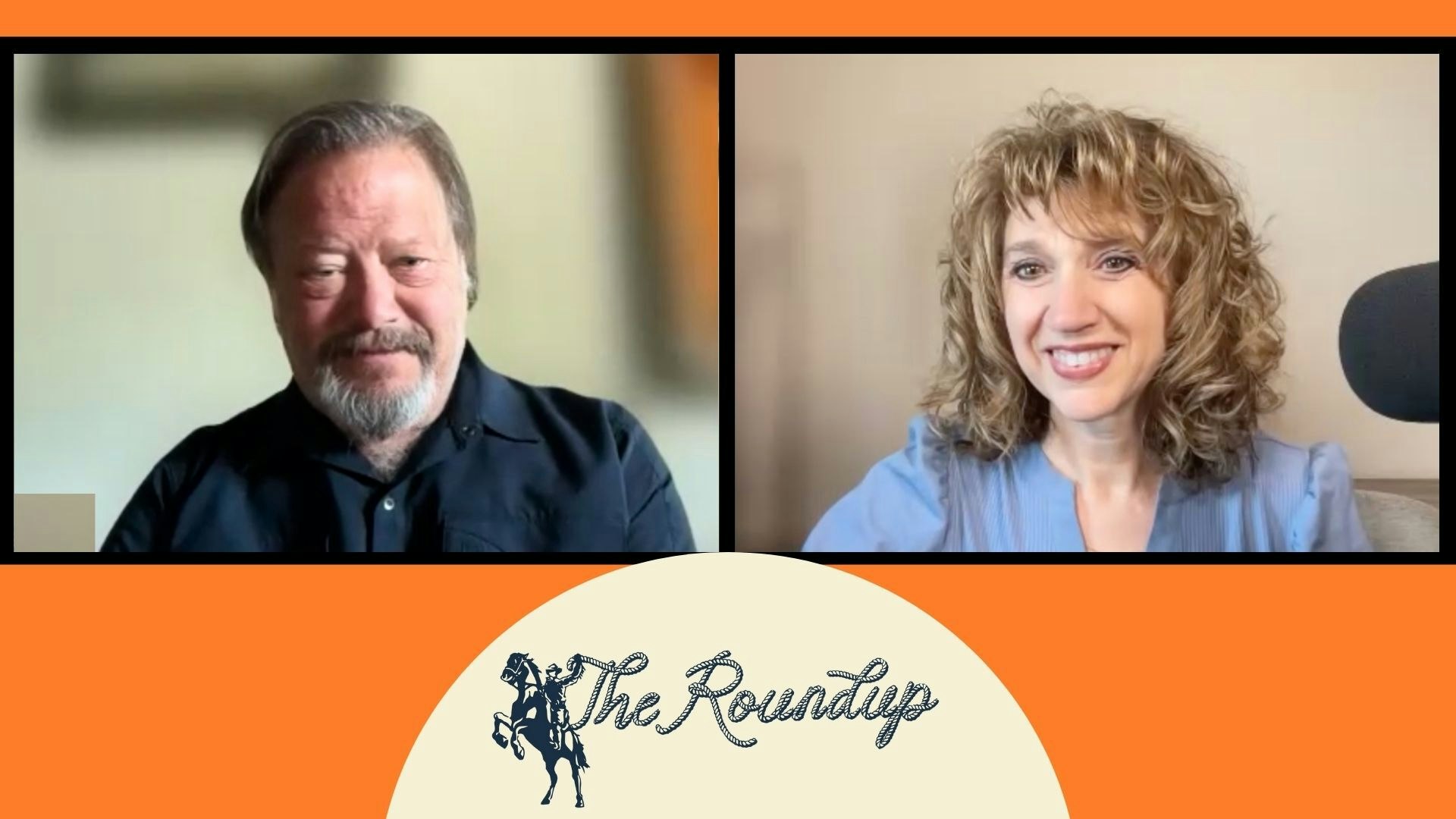Senator Cynthia Lummis
Wendy Corr:
Well, hey there, folks, welcome to The Roundup! We’re a podcast featuring voices, opinions and perspectives from interesting people in the Cowboy State. I'm your host, Wendy Corr.
Today we have the privilege of visiting with one of our, really, longest running and longest elected officials in the state. She's been both a state senator, and a state representative. She's been a US Representative and is now a US Senator. Cynthia Lummis, homegrown Wyoming person, Wyoming personality, and that's who we want to talk to today, is the personality!
So hello, Cynthia Lummis. Senator Lummis. It's so good to have you on the podcast today.
Sen. Lummis:
Wendy, thank you for letting me join you. It's great to see you.
Wendy Corr:
It's great to see you as well. You know, that's the one thing that I love about Wyoming is that we all - there's not seven degrees of separation between people. It's so much smaller than that. If you live in Wyoming for any length of time, you know people who know people who know people, and we have lots of connections. But Cynthia, you have connections going back generations, don't you?
Sen. Lummis:
I do. My great grandfather came from Germany in about 1869, so just after the Union Pacific Railroad came to Cheyenne. He was on the train heading for California, but there was a blizzard. He and the other able bodied young men on the train dug it out, they backed it into Cheyenne, from between Cheyenne and Laramie. And he stayed.
Wendy Corr:
That's a fabulous story. Oh my gosh. And stayed and raised generations from there. Because you grew up on a cattle ranch in Laramie County. Is that correct?
Sen. Lummis:
I did. My great-grandfather was in the hardware business. And in Cheyenne, they had a store, he and his partner, that they shared with a gentleman whose last name is Elitch. It was one store, but they just painted a red line down the middle of the store, so the hardware store was on one side and the dry goods store was on the other side. Eventually, Mr. Elitch moved to Denver and founded Elitch Gardens, the amusement park.
Wendy Corr:
I knew that was a familiar name. Okay!
Sen. Lummis:
So my great-grandfather, whose name was Jochim Arp, eventually bought out his partner, Mr. Hammond, and it was Mr. Hammond who primarily had the ranch. And so when my grandfather, Doran Lummis, returned from World War One, he became a rancher, and that's how we started in the ranching business.
Wendy Corr:
And you have continued to raise your family in Wyoming. You've got a wonderful daughter, Annaliese, who I have met, and she's actually one of the people that got me started here at Cowboy State Daily, which is a fun story.
Sen. Lummis:
Well, she and Jimmy Orr founded Cowboy State Daily.
Wendy Corr:
Exactly.
Sen. Lummis:
And she was the early person who get up at the crack of dawn, and put their news service online. And the first thing they put online was the legislative session. And there were some wonderful, very experienced veteran newscasters who were involved in the early days of Cowboy State Daily.
I know I'm certainly proud of what you all have made it, Wendy. It is, you know, the premier online news source in Wyoming. So you should all be proud of the product you put out every day.
Like everybody else, you know, in the morning, the first thing I want to look at is Cowboy State Daily. Don Day's weather is what all the ranchers want to listen to, because he's so good at giving a lot of detail about the weather that's coming. So it's a great product, and thank you for your involvement in it.
Wendy Corr:
I love being involved in it. It has been just one of the best career moves I ever made.
Sen. Lummis:
Good, that delights me.
Wendy Corr:
It delights me too!
You know what else is really wonderful, Cynthia, is your longevity in being involved in politics in Wyoming, and now representing Wyoming in Washington, DC. You are one of the youngest people ever elected to the Wyoming legislature - what got you started with an interest in politics? What made you say, “I want to go and and speak for the people in my county, speak for the people that are my neighbors?”
Sen. Lummis:
My dad was a county commissioner when I was growing up, so I was exposed to politics pretty early. But not the legislature. So, when I was a senior in Animal Science at the University of Wyoming, I needed a humanities credit to graduate. And I found out there was an internship program at the Wyoming Legislature that would satisfy that requirement to graduate.
So I signed up for an internship in the Wyoming Legislature, that was in 1976. It was the very first budget session in Wyoming's history. And it changed the course of my whole life. I fell in love with the Wyoming Legislature and the people there, and the issues.
And so shortly thereafter, I ran for the Wyoming Legislature in 1978. And 1978 was sort of a post Watergate backlash year. So every single woman who ran in Laramie County for public office won, and so it was kind of a right place, right time thing.
And yes, I think I'm still the youngest woman ever elected to the Wyoming Legislature.
Wendy Corr:
That is something to be proud of. And it's something that all of us women should be proud of, the example that you have set for us in that way. You have seen so many changes, Cynthia, in politics, not just here, not just in your local constituency there. But you've seen politics change in Wyoming and at the national level. Tell us your experience in the 70s and the 80s, being in the Wyoming Legislature, and how it's different from what it is today.
Sen. Lummis:
Well, it is very different. There was a much more robust political party division. There were more Democrats. And in Laramie County, there were a lot more Democrats, Republicans were in the minority when I was in the Wyoming Legislature.
And so there was a lot of bipartisanship, to be honest, even though there were two political parties. It was a very pro-Wyoming time. And what I think I'm seeing now is, as there have been fewer and fewer Democrats in the Wyoming Legislature, there are still, really, two parties. But it's within a uni-party. So you've got a lot of internecine battles, Republican on Republican battles. So really it you know, it hasn't - there are fewer Democrats, but there's still as many strongly held opinions. Most of it now is debates where Republicans are disagreeing with Republicans, as opposed to Democrats and Republicans disagreeing.
It was really bipartisan though. For example, even when the Republicans were in control, there was a guy named H.L. Jensen, who originally from Jackson, Wyoming. But he was so good on water issues that he chaired - as a Democrat in a Republican legislature in Wyoming - the Select Water Committee.
So they were very different times. And of course, we're all more nostalgic about the time that we served. I happen to think that we did some very good legislating, and we solved some enormous problems that required compromise. So I'm really proud of the time I served, and I'm very proud of the people I served with.
Wendy Corr:
How do you take that experience, that bipartisan experience that you had at the Wyoming Legislature, how do you take that sense of you know, “we really can work it all out,” how do you take that now in Washington, DC? You've been a representative, a US representative to Congress. You are now a US senator, from the state of Wyoming. How are you drawing on that experience to make things happen in Washington?
Sen. Lummis:
Well, I am not... You know, when I was a Wyoming legislator, I married a Democrat legislator.
Wendy Corr:
I did not know that, that's great!
Sen. Lummis:
Yeah, we were married for 31 years, he passed away 10 years ago. But I was married to a Democrat state legislator. So really, everything about my daily life was not dominated by some sort of a political identity, a partisan political identity. Certainly, my core values are very much embedded. But partisan labels were, you know, just really not what made you get up in the morning and go to bed at night. It just, it wasn't as important as it seems to be now.
And so I brought that attitude with me, to the US House and US Senate. So for me, you know, working with someone who happens to be a Democrat, it's just less important than, you know, how do we feel about this issue? Is this an issue we really want to address and solve? And I'll work with anybody who wants to address it and solve it and try to find a way to reach an agreement. And I think I have that reputation.
It was difficult to reestablish that reputation when I came to the US Senate. Because my first week in the US Senate, what's the week of January 6.
Wendy Corr:
Oh, my.
Sen. Lummis:
And oh, my gosh, it was brutal. And I was one of the people who voted against the Pennsylvania electors. I voted for the Arizona electors. Those were the only two challenges that occurred that day. But that sort of branded me for a while. People, some of the Democrats, mostly the Democrats, quite frankly, thought that I was an insurrectionist. And, you know, I can't even describe how brutal that first year in the US Senate was. It was ugly and nasty and mean. And, you know, I just had to cut through it. And I think I did, I think I was very successful.
People who had served with me in the house, Democrats who served with me in the House, knew that I wasn't an “insurrectionist.” You know, I'm a thinking person. And so some of my former colleagues that were with me in the Senate, they shared with their colleagues that, “Yeah, we've seen her legislate in the house, and she's really a very reasonable person.” And so I broke through that. The ice thawed after a year, but it took a whole year.
Wendy Corr:
But you stuck it out. How much did your relationship with your fellow Wyoming representatives, with Senator Barrasso, and as well, with Representative Hageman, how did that help you?
Sen. Lummis:
Well, I fortunately came into the US Senate with the support of both Mike Enzi, who was departing, an and John Barrasso. John Barrasso is in the Senate leadership, so he was instrumental in also helping Republicans understand that, you know, I'm not some knee jerk insurrectionist.
And so John has just been a fabulous partner. And he's so highly respected in both parties, so well thought of, and his leadership in the US Senate is so well thought of. He has the most conservative voting record of anyone in the Senate Republican leadership. So it's terrific that he's been able to embed his conservative credentials and function as one of the leaders of the US Senate. It's really an honor to serve with him.
Wendy Corr:
That's wonderful. You know, I'm gonna go back to something you said just a few minutes ago, you said you were a thinking person, and that has served you well. I don't know that our readers and our listeners really know how educated you are. You have three degrees from the University of Wyoming. Tell us about that, because I think that's fantastic. Your degrees are in animal science, biology and law. Is that correct?
Sen. Lummis:
That is correct.
Wendy Corr:
What made you keep going back to school? Because that's a lot of school.
Sen. Lummis:
Especially for a girl who really didn't like school.
Wendy Corr:
That does, that says something! Yes.
Sen. Lummis:
I always wanted to be on the ranch. And so I studied Animal Science at the University of Wyoming. When I graduated in 1976, the job market was really tough in Wyoming, and I literally couldn't find a job. So I went to California and worked for a rodeo stock contractor, for Flying U rodeo company in Marysville, California. We did rodeos all over the West, California, Nevada, Utah, Idaho and Montana primarily. And it was not the stuff of careers.
And so I came back, and got a second bachelor's degree at the University of Wyoming. And then, when I completed my second bachelor's degree in biology, my family bought part of the ranch next door. The Wyoming Hereford Ranch, which I grew up next to. It was a big ranch, it was like 63,000 acres when I was a kid. And it was broken up, and a number of the neighbors bought parcels next to them, and added on to their ranches. My family did that as well. And so then there was room for me on the ranch, to go home and work on the ranch, which is what I did.
And then, I started serving in the Wyoming Legislature. I served for two terms, four years. And I was on the House Judiciary Committee, and we were working on such a wide variety of subjects. We did the probate code revisions, the criminal code revisions, the involuntary hospitalization and emergency detention laws. We did an enormous - the liquor laws, the eminent domain laws, we did so many different subjects that I developed an interest in studying law.
And so I served four years, left for a term, went to law school, and then came back and served 10 more years. So I served a total of 14 years in the Wyoming house, and then the Wyoming Senate, with that interruption, to both go to law school and then clerk at the Wyoming Supreme Court.
So I had this wonderful, wonderful opportunity to serve the legislative branch, the judicial branch as a law clerk, and then serve as Wyoming State Treasurer. So I served in all three branches in Wyoming, and it was indescribably terrific.
I served with so many great Wyoming people that really shaped Wyoming to be what it is. And it was the kind of experience that is hard to have outside of a state like Wyoming. We're so knit together. And I just feel so blessed to have been born in Wyoming, and lived my whole life here.
I can't imagine a state that provides someone with more opportunity, and a more nurturing environment. People help each other, they mentor each other. And you get thrown in the deep end of the pool early on, and so you get to develop experience at an earlier age in Wyoming than you might in another state. So it's just the best. It's the best training cram I can possibly imagine, for somebody who's intellectually curious, and you know, kind of motivated to try different things.
Wendy Corr:
Well, I can't imagine having anybody with more experience and more breadth of experience to be representing us in the United States Senate in that way. I mean, you've just really seen it all, in that way. So we're very pleased that you're there and that you're speaking on our behalf, Cynthia, thank you for what you're doing.
Cynthia, tell me, because on The Roundup we like to get personal, not terribly personal, but we want to talk about who the people are, and not just their voting record or things like that.
But at the same time, we still want to hear, what are the issues that you are really passionate about, that you are speaking on our behalf about there in Washington DC.
Sen. Lummis:
Well, when I arrived in the US Senate, as I said, it was the week of January 6. So it was a tough time. But I came here with a background in digital assets, specifically Bitcoin, and no one else had that. So it was an easy place for me to find a unique path. And so I've continued to work on digital assets, and I've kind of developed a reputation for being knowledgeable about that subject. I am sponsoring the comprehensive framework for legislating on digital assets with Senator Kirsten Gillibrand of New York State. So it's bipartisan, and it is the most comprehensive bill that's ever been introduced to provide a legislative framework for digital assets. So that's something that just came right from the get go.
I also work a lot on banking issues, including housing, Indian Housing, specifically, and that's just by virtue of my committee assignment.
I work a lot, of course, on natural resource issues, and work on those particularly with Senator John Barrasso, who is the chairman of the Energy and Natural Resources Committee for the Republicans. He's right now the ranking Republican on that committee. If the Republicans take over control of the Senate next year, he will be the chairman of the Energy and Natural Resources Committee, which is a huge, huge deal for Wyoming. And then, of course, that's also Harriet Hageman’s area of expertise, from her lifelong practice of law in Wyoming. So the three of us come with a pretty solid background in natural resources and energy, and so I frequently work with them on those issues.
I also work a lot, because I'm on the environment committee on uranium and nuclear issues, and one of the things that's coming up in Wyoming that I think has tremendous potential is micro nuclear energy, and small modular nuclear reactors. This is becoming an industry whose time has come. There are prototypes out there, there are tests going on at the national labs in Idaho Falls, Idaho, and this industry, I think, will embed and grow in Wyoming, possibly in the most unique way in the nation. I think that Wyoming is about to become a leader in nuclear energy, both the small and micro, modular nuclear energy components. I'm very, very excited about that.
Wendy Corr:
That's wonderful. We're so glad that you're on top of that, and that you've got the interest in those things, and of course, the experience as well.
Cynthia, we're running out of time here, we want to make sure that you have a chance to tell us, what is it that you want us here back in Wyoming, what is it that you want us to know about what you're working on, and the things that we can be hopeful for there in Washington, DC. Because we hear all the bad news coming from Washington DC - what do we have to look forward to that looks hopeful for us here in the Cowboy State?
Sen. Lummis:
Well, I want people in Wyoming to know that I really am all Wyoming, all the time. And so I'm working on Colorado River Basin issues. Obviously, in Western Wyoming, the Colorado River drainage is extremely important to us. I'm the Vice Chair of the bipartisan Senate Committee on the Colorado River, and I'm the vice chairman for the Upper Colorado River Basin states. So I'm working really hard on Colorado River Basin issues.
I'm working on issues that the energy industry can take into the next quarter of the century. For Wyoming be they uranium, oil, gas, coal, and other energy sources. So energy remains a tremendously important part of my portfolio.
I want to see Wyoming remain a state that just abounds in natural resources, that has a small but extremely talented population. A state that, as artificial intelligence takes over a lot of white collar functions, that we develop a tremendous expertise in traditional blue collar, skilled labor functions - you know, plumbers, electricians, people who can maintain all of this AI infrastructure. And it's just going to become so much more important in the years going forward, that skilled blue collar label labor be available. And I think that's an area where Wyoming can really excel.
You know, we have fabulous community colleges that can help train people in careers that are going to be tremendously important. And what I see happening with AI, is, you hear “oh, it's going to eliminate all of these blue collar jobs.” And what we're really seeing it's going to augment and eliminate some white collar jobs, but not blue collar jobs - that's where the opportunity is going to be. And our community colleges are training technicians and skilled labor that are just gonna be able to take their skill set anywhere.
And as states reclaim their sovereignty, because the federal government's gotten so big that it's exhausting itself, and it is going to recede in importance in the next 25 years. States are going to resume and regain their sovereignty, and their role, as the founders of our country envisioned it under the 10th amendment.
So Wyoming's state government, its legislators, its policy makers, are going to become so much more important in the next 25 years, as the federal government exhausts itself and needs the states to take over these functions, that I'm excited for Wyoming. But it's also a call to action for Wyoming. We need to step up to the plate, and be able to assume these responsibilities that the founders envisioned us to have from the get go, and accept that responsibility and move forward.
So I'm very excited for Wyoming, I think the next 25 years for Wyoming are going to be important. And I’m very proud of my state. I love it, because it's part of me, it's just kind of in my DNA. And I just am so grateful to be a native of Wyoming.
Wendy Corr:
Well, we are grateful that you are there speaking on our behalf and working on our behalf. Cynthia Lummis, thank you so much for being our guest on the roundup today. We're grateful that you were able to take time out of your very busy schedule, to speak with us and to speak with our listeners - and keep doing what you're doing! Thank you for all that you do.
Sen. Lummis:
Thanks, Wendy, it's been my pleasure.
Wendy Corr:
Very good - and folks thank you for tuning into The Roundup today, and for listening to our conversation with Senator Cynthia Lummis. I've been your host, Wendy Corr. Tune in next week, we're going to chat with another great Wyoming personality about news, views, issues, topics, really fun stuff that's as important to you as it is to us. Have a great week.





